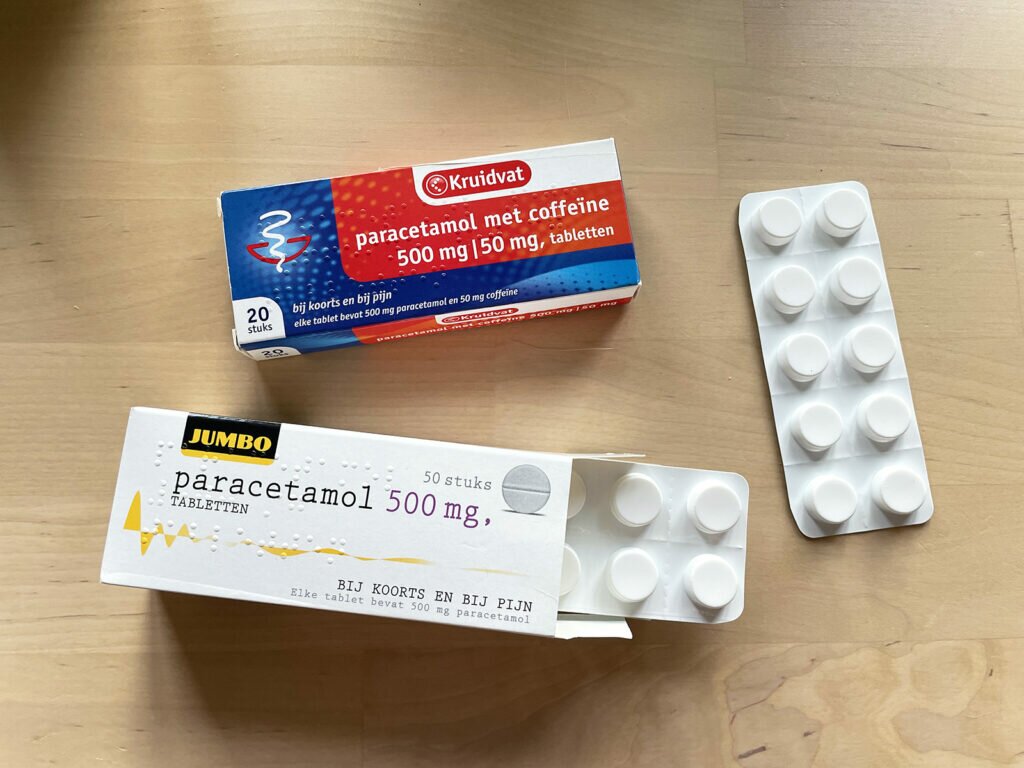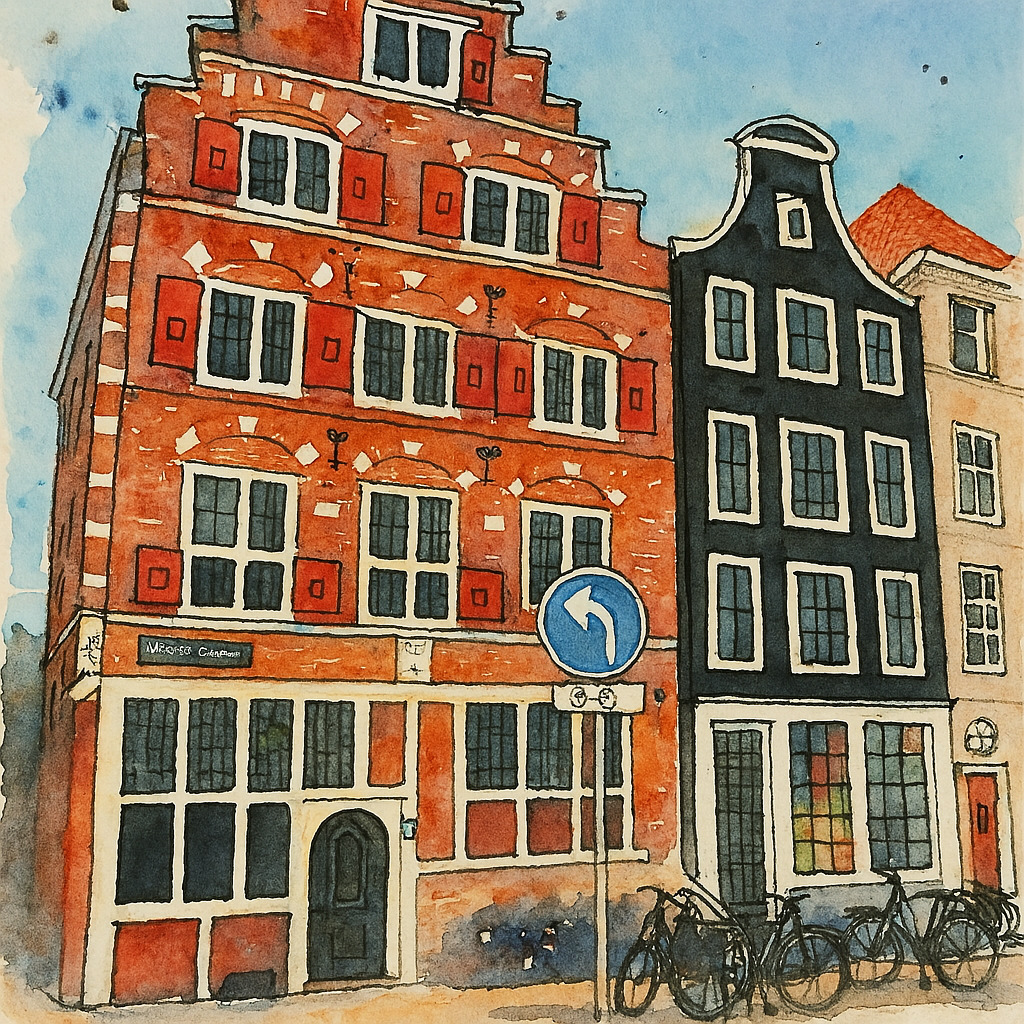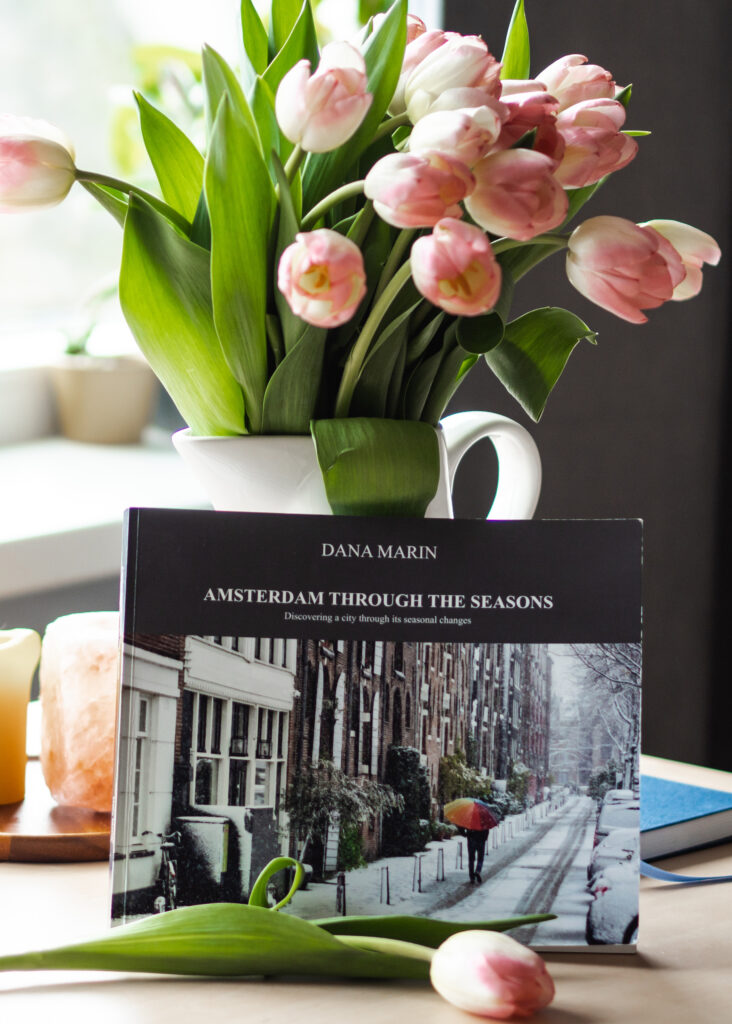Start a discussion about the Dutch doctors with any expat living in the Netherlands (or even with some Dutch nationals), and soon you’ll hear a lot of complaining, stories about bad experiences, frustration, and advice on how to go to other countries to treat your health issues. It’s not uncommon to hear about people going to the neighbouring countries for medical care, or back to their home countries (for expats). This was not the image I had in mind when I moved to the Netherlands. A medical system in a developed country, where there is research happening and they have money for fancy hospitals, should be great, right? Well, certain aspects of it are definitely great (like hospitals equipped with innovative technology and highly skilled specialists), but when you have a health problem, you first have to go to the family doctor – the first level in a game you will have to play if you want to recover your health. And, contrary to your usual game, this level is the hardest one to pass! Like the first level of Squid Game, most players will fail here (sorry for the spoiler). It requires nerves of steel, patience and good planning. But if you get the hang of it, you might succeed. In the Netherlands, the family doctor does most of the consults (including gynaecological) and also performs minor surgeries, so you really need to learn how to get the best out of the interaction.
But what is this thing about the Dutch family doctors? In short, they are notorious for recommending paracetamol for everything, not taking people seriously and, in general, not solving patient’s medical issues.
If you are familiar with my blog, you know I like my adoptive country and I’m not one to constantly complain about this or that. It is what it is and I choose to live here, so no complaints needed. But recent experiences with the family doctor (aka GP) got me very frustrated, and I thought an article about that is in order. I’ve accumulated a lot of this frustration over the years, and if you live in the Netherlands and had health issues at some point, you know what I mean. My disappointment actually goes beyond just the Dutch medical system, but I won’t get into that today.
Disclaimer: This is an article about the family doctors, and not about the entire medical personnel working in hospitals and practices. It’s based on my experience and my friend’s experiences. I am generalising up to some degree, but I’m also stating the exceptions.

My experience with Dutch family doctors
Among the first things I had to solve when I moved to the Netherlands was finding a family doctor. I didn’t want to be that expat flying back to the home country every time they had a health issue, and I was hopeful about the Dutch doctors. To find a GP, you have to look for practices in your area that are still accepting new patients. It can be a tricky thing, as most of them are at full capacity and you might have to accept whichever doctor is free because there are no other options. But if you do have options, and you have the possibility to choose between doctors, you can schedule an introductory meeting to see which one you like best. Even though this meeting might not be relevant, because the doctor will be on its best behaviour, you could at least eliminate the ones that won’t even make it to the appointment because they forgot about it (sigh).
The first family doctor I had was very charming at the introductory meeting, but not so charming afterwards. After failing to find a doctor in my area, I had a recommendation for this one who was accepting patients from all over the city, so I registered there. At every one of our next meetings, he was trying to get me out of his office as soon as possible, and he would stand up while I was still talking, before the 10 minutes were up, to show me the door. The last instructions were shouted while I was on my way out, in the hallway. He did give me antibiotics when the situation required it, unlike other doctors I’ve heard about, so I thought he might be good for something. He was my doctor for a while, before I got fed up and gathered the courage to look for another.
The one I found after that, which is still my doctor today, is a good doctor, who listens more to my complaints and gives good explanations. She is one of the doctors who treats their patients as they should, and I had pleasant experiences with her. But she is also extremely busy (what a surprise!). That means I can’t always get an appointment with her, so I have to see one of her colleagues, which ends in disappointment every time (or sometimes ends up with me being sent home, then called back and told I should go straight to the hospital, because after consulting with my doctor, they realised I needed urgent intervention).
What I like about the Dutch family doctors
It’s not all gloom and doom about the Dutch doctors. There are things I like about their approach. For example, I like the fact that they don’t jump immediately to the most invasive treatment, and sometimes they first try to solve issues with sport, physiotherapy, diet or lifestyle changes. I’ve heard of people with diabetes who kept their problem under control with diet and sport, people with breathing issues who didn’t get worse because they were doing the recommended sport religiously for over 15 years and so on. However, this approach would make more sense and have better results if it would be part of a holistic approach and a great prevention program. But, alas, it is not.

What I don’t like about the Dutch family doctors
There are a few reasons why Dutch family doctors have this approach. One reason is the way the medical system works; most of the doctors are overwhelmed, they have too many patients and they can’t afford to give enough time, attention and energy to each individual. Another important reason is that they are trying to avoid the costly investigations and treatments as long as possible. The insurance companies are on their neck, asking for one hundred justifications for every recommended action that costs anything, so they are trying to make their lives easier by sending you home with paracetamol and chamomile tea instead.
There is also the reason that they don’t trust the patients and think everyone exaggerates. I wonder if they don’t have classes at the university teaching “How to ignore what they’re saying and solve everything with paracetamol and tea”? I can’t find excuses for the indifference they show towards a patient’s complaints, the way they try to dismiss your worries and minimise your suffering. Postponing something until it becomes very serious and more complicated to treat is their specialty. As an example, I had a twisted ankle which was not treated properly (actually, not treated at all, not even looked at), and because of that I limped for almost a year and had to have physiotherapy for many months. True, it was not a life-threatening problem, but limping is still not pleasant, especially when the whole thing could have been avoided by having a cast in the first days after the accident.
There is almost no prevention medicine: back in Romania, I used to have my blood tests done every year (at my request) to make sure everything was fine, but when I moved here, I had to have discussions with the doctors about why do I need it. Eventually, I gave up. Also, the gynaecological controls (which are done by the GP as well in the Netherlands), require a good reason to happen. They won’t just check to make sure nothing is wrong. The Pap smear test (the one that looks for pre-cancer, cell changes on the cervix that might become cervical cancer), which in most countries is done yearly, is done in the Netherlands every five years. If you go to your doctor and ask for the test every year, they will ask you if you work in the Red Light district, as this test is recommended every year only for sex workers. You might convince the doctor to do it, but don’t expect the insurance to pay for it — you will. The Netherlands has a high mortality rate for cancer patients, and I wonder how many of those cases would have been treatable if discovered early (I hope I’m making wrong assumptions about this, for everyone’s sake), because the treatment for cancer patients is very good in this country.
How to deal with a Dutch GP
In time, after many disappointments, ignored injuries, but also a few successes, I learned how to prepare for the doctor visits. First, because the allocated time is very short, I sometimes book double visits. But even so, I was rushed out of the doctor’s cabinet earlier than expected, so the most important thing is to have my speech prepared. I prepare it in my head before going there and I’m trying to be as efficient as possible, stating all my complaints as clear and as quick as possible. I also have to anticipate their answer and have a good reply to that. If I want to see a specialist, I have to be prepared for them trying to send me home to wait a couple of weeks, first, then to physiotherapy, etc. I tell them I have already waited and I’m not even lying, because I usually wait before going to the doctor. This is a stupid thing I learned from the Dutch doctors, and, last year, a health problem which I waited to see if it’s not going away by itself, ended up sending me to the ER in the middle of pandemic and subjecting me to unpleasant interventions.

Tips and tricks for you
But enough with my story, let’s recap and make a plan for you to have when going to the Dutch family doctor:
- Prepare your speech: know exactly what you need to tell them, in which order, make sure you don’t miss anything. Try to anticipate their reactions and prepare an answer for that.
- Be very confident when you state your symptoms.
- Book a double appointment if they give you the option.
- Tell them you waited two weeks before the appointment. Tell them you took all the paracetamol in the world and drank all the herbal tea and even did some physio with the help of YouTube; maybe praying for healing is also worth mentioning, or some magical treatments with unicorn dust. Then, maybe, just maybe, they will agree to send you for tests.
- You can also exaggerate your symptoms if you want to be taken seriously, which I find stupid, but oh well, it works. If you have something that looks life threatening, they will send you to a specialist, and there is where the experience gets better. My experience with specialists and hospital was always a good one. I was well taken care of and treated with respect. I even had a heart-warming experience with a nurse who held my hand through a procedure, because it was pandemic time and I couldn’t have anyone with me in the hospital. I’ve heard of some people having encounters with incompetent medical personnel, beyond the GP, people who didn’t receive the right treatment, but I can’t tell you their stories because they are not mine to tell.
- Be prepared to insist. If you feel you’re being dismissed, don’t let them intimidate you and hold your position strong. If still you’re being sent away without having your issue solved, wait two days and make another appointment. Bother them until they solve it.
- Sometimes you will meet doctors or nurses who seem incompetent. You have to learn your way around that as well. My experience so far includes a GP looking for a diagnostic on Wikipedia and various nurses trying to draw blood for tests and having big difficulties with that: not finding the veins and sticking needles the wrong way is their specialty. Once it got so wrong that, after many unsuccessful attempts, the nurse pushed the needle so strongly and made the blood burst like a water fountain (have you fainted already?). She was more panicked than I was. A friend of mine was sent home after both nurses from that practice tried to draw blood, sticking the needle seven times in both arms. In the end they told him that ” the blood doesn’t flow today, come back another time”. So, in case you didn’t know, your blood is not flowing every day, only on the lucky ones. I never had these issues in Romania. They always found my veins on the first attempt. I’ve heard these stories from many of my friends, and one of them gave me a solution for it, which I’m going to share with you. If the nurses at your doctor’s practice butcher your arm for a vial of blood, ask to be sent to the laboratory for that, because they can’t refuse. You spend extra time on this, but it’s worth it. I tried the solution and had no problem; they were professional and successful from the first attempt. It was all nice and no bruises.
As you can see, there is a light at the end of the tunnel. There are solutions for getting better results from the visits to the family doctors. Although I hope you need them as little as possible!
I think that was all the knowledge and all the rant I had, for now. I hope it helps. It’s my opinion and my experience — and maybe you had a better one (or worse). If you want to tell us about it, you can do so in the comments section. I would like to hear it!
Stay tuned for more and follow Amsterdamian on Instagram and Facebook for more stories about life in the Netherlands. Please share this post if you liked it!
Check out my photo book: Amsterdam Through the Seasons!
Love what you’re reading? Support my work with a small donation.


















Absolutely spot on! Thank you for sharing this wonderful advice and very accurate tips for navigating the first line of medical defense in the NL: The Family GP. Your experiences echo mine exactly and I’ve ended up passing along the same strategies to my friends. Being asked, “Can you just live with it” and turned away, led to longer than necessary suffering and lower quality of life for no reason whatsoever; not to mention the mental anguish, frustration and following depression due to being marginalized for so long. Upon realizing it was not all in my head and no longer plagued with self doubt (instilled in me by the doctor), I learned to find better help. This article is priceless for future patients and current ones as well. Thank you so much for sharing this!
Thank you, Teri!
They do have a way of instilling self doubt, don’t they? And I’m soo tired of hearing: “You have to live with it”! I’m glad you found a better help!
💯%..no forget that!!…200% real life story indeed. I’ve been living and working (paying my taxes, and insurances and all) for two years in Amsterdam now and while many things work quite well here, medical system fails big time (from my perspective) in 1st level of support, GP level. I shared your article on Linkedin. Thank you so much for sharing your thoughts.It’s a relief to see we are not alone here. As a writer and author (and Romanian) myself, I find your style brilliant. 😊👏
Thank you, Loveheimer. You are definitely not alone 🙂
Fui profissional de saúde na Holanda durante 52 anos e li os seus diversos artigos/reações, as suas dúvidas, etc etc. Evidentemente que qualquer médico tem um tempo limite para atender cada doente.Não mandamos ninguém para a rua enquanto o doente fala ou está a contar a sua “historia”! A pessoa deve ir preparada, ser curta naquilo que sente ou que tem mas nem tudo ´´koek en ei”!!!como dizemos.! Em todas as profições há maus e menos bons profissionais mas …nós portugueses, reclamos por tudo e por nada!!!! mas se na Romémnia era tão bom!!??? por razão foi para a Holanda?
A minha experiência foi boa com holandeses e menos boa com os latinos!!!Mentalidade holandesa!!?? talvez um pouco mas….como profissional!!!,… você deveria estar um dia sentado na cadeira do mé dico e ouvir, ver tudo o que se passa lá dentro…e então você iria mudar de opinião!!. Outra coisa, o curso de médico de familia na Holanda é totalmente diferente do português, clinica geral mas muito mais intensivo em todos as especialidades….e quando não se confia no diagnose, envia-se o doente para um hospital mais próximo!!!!Poderia contar mais causos mas… è pena certas pessoas pensarem dessa maneira!!!
Hi JE. I am simply talking about my experience with the Dutch family doctors. If you read the entire article you will see I also mentioned what I LIKE about them and also some of the reasons I believe the system is as it is. And no matter how angry you are at me, my bad experiences have happened and won’t just disappear.
Citind mesajul tau, m am recunoscut total. Nu am știut că ești româncă pină pe la mijlocul articolului și poate și pentru că avem aceeași termeni de comparație rezonez așa bine… Nu sunt dezastru medicii în sine, dar cit de greu ajungi la specialiști sau cum suferi inutil pentru ceva tratabil, este ceva de necontestat.eu acum aștept o programare la Bruxelles, deși cele 6 ore de condus dus întors mă termina… Nu am găsit încă rețeta de cum sa trec peste GP… chiar și vrind să plătesc.. nu se poate…
Poate alt GP? Unii sunt mai flexibili 🙂 Si sper sa rezolvi la Bruxelles! Sanatate!